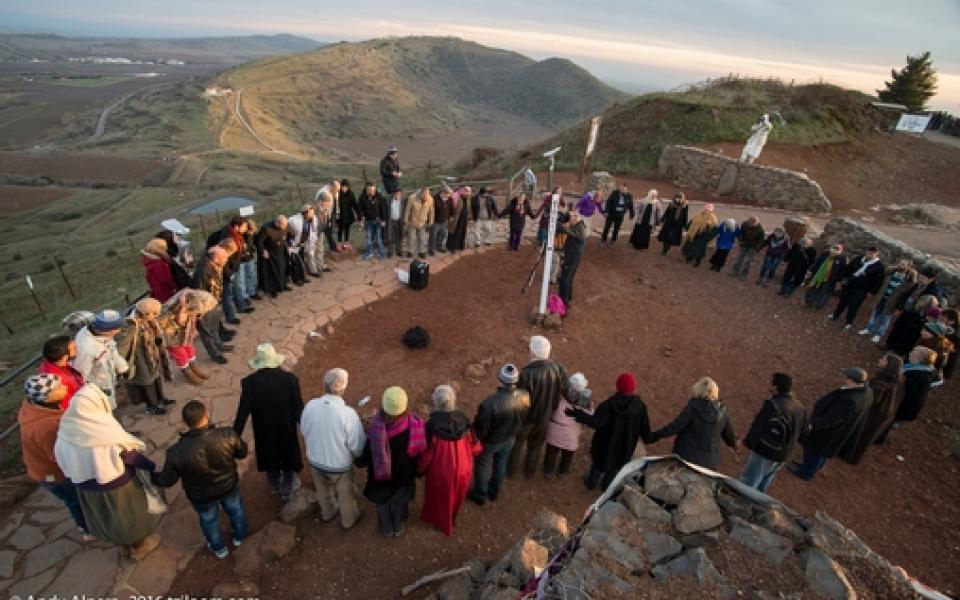
URI members gather on the Israel-Syria border as the sounds of battle are heard from below.
URI began by engaging people in conversations as they sat in circles. Member groups and organizations in URI are called Cooperation Circles because aligning with "circle" is held as a core practice.
Early on, indigenous members of URI spoke of the power and significance of attuning to the power and meaning of circles.
Recently, I came across this piece by Kay Pranis. It includes a link to more information by Kay about the power of engaging and working with people in circles and with "circle" assumptions and qualities.
This information is useful to help us remember the significance of "circles" in our lives and especially in our URI work.
Learn more about circles from Kay Pranis:
Kay Pranis: The seven core assumptions are a set of beliefs. When Carolyn and I were writing “Heart of Hope” we decided that it should be clear to our readers that they knew where we were coming from—where we set our fundamental beliefs of our practice and the way of using circle.
So the first assumption is that the true self in everyone is good, wise and powerful. Circle is very rooted in the idea that every one of us is born with a fundamental inclination to be in good relationship with others and that it is genetic because we've evolved in community and so our genes have to carry the information for how to be successful in community. We are born with powerful impulse to be in good relationship with others and that we are also born with knowledge of what it takes to be in good relationship with others. We talk about that as the true self, the core self or the best self in everyone that is good, wise and powerful. This assumption is that, no matter what happens to you or what you do; goodness is still there, though it might be deeply buried.
The second assumption is that the world is profoundly inter-connected. This is one of the most important things that I came to understand more clearly working with Indigenous people. This understanding of everything as inter-connected that you CANNOT disconnect. It's not possible in the nature of the universe. Once we understand that, it has huge implications for everything that we do, because then we understand that everything we put out also comes back to us through all of connection.
The world is profoundly inter-connected.
The third one is the truth that all human beings have a deep desire to be in a good relationship. That is a part of human nature.
The fourth is that all humans have gifts. Everyone is needed for what they bring. That we are all needed and not just humans, but every other aspect of the universe brings its gift. Everything has a purpose and a role.
Fifth assumption—everything we need to make positive change is already here. We have it. We have the wisdom ourselves. We have the knowledge. We can find ways to access that together.
Sixth, Human beings are holistic. You just cannot work with the mind, or just with the body. Human beings have these other aspects; the emotional side and the spiritual side. They are always there and when we are not being paid attention to, they always impact us sideways and we don't really understand what's going on. Then we have to work with the whole human being.
The seventh assumption is the idea that in order to live from this core self that represents the best in us, we have to practice. Practices are really important and circle is a practice. If you don’t practice it, it's harder than to use it when you need it. All of these things build on each other and can become habits of how you show up in the world—but only if you practice. Those are the seven assumptions.